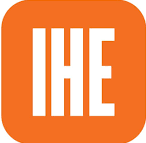
Higher Ed Drive
October 23, 2025 Pre-College Outreach, Admissions
Although SAT and ACT score averages for the class of 2025 prove to be an improvement from the previous year, scores still remain below pre-pandemic levels. This year, SAT scores for reading and writing averaged at 521, while math averaged at a score of 508. These scores are lower than the 2019 average scores of 531 and 528, respectively. Furthermore, this year, only about 30% of students who took the ACT met 3 or more of the established college readiness benchmarks. These exams continue to see a decrease in the number of test-takers, which is highly credited to the test-optional approach established by institutions during the pandemic, with nearly 90% of U.S. higher education institutions remaining test-optional for admission.

New York Times
May 22, 2025 Pre-College Outreach, Enrollment Management Trends
The New York Times provides a thoughtful resource that thoroughly addresses questions about college financing, including FAFSA, work study eligibility, housing, tuition costs, etc.

HIGHER ED DIVE
March 27, 2025 Pre-College Outreach, Enrollment Management Trends, Value and Affordability
According to the Western Interstate Commission for Higher Education (WICHE), high school graduates will peak at 3.8 million students in 2025, leading to a more gradual decline in college enrollment over the next 15 years. An approximate 15% gradual decline in enrollment would allow institutions and policymakers time to prepare for anticipated financial hardships, potential institution closures, and other demographic shifts. Additional contributing factors to the enrollment decline are the current economy and job market and the increased skepticism about the value of higher education. Preventative measures that can assist institutions’ ability to succeed include: retention rates, implementation of equity and inclusion, and a greater shift to a non-traditional learning environment.

HIGHER ED DIVE
January 27, 2025 Pre-College Outreach, Admissions, Enrollment Management Trends
The Western Interstate Commission for Higher Education (WICHE) recently predicted high school graduates will peak between 3.8 million and 3.9 million. After 2025, the population is expected to decline in 2030 to 3.1% lower than 2023 levels and 10.5% lower in 2041. The estimated decline in graduates is largely determined by birth rate, how quickly students’ progress through high school and earn diplomas, migration and mortality patterns, and the college-going rate. Specifically, 38 states are expected to experience declines while 12 states and Washington, D.C., will actually see increases. Overall, the decline in high school graduation rates will cause national workforce challenges and shift the ethnic and racial makeup of high school graduates. Proactive solutions to manage the expected decline include improving the immediate college-going rate of high school graduates and the progression and retention of students who do enter college.

HIGHER ED DIVE
December 11, 2024 Pre-College Outreach, Admissions, Enrollment Management Trends
The Western Interstate Commission for Higher Education (WICHE) stated there will be a greater decrease in high school graduates, projecting a 3.1% decline in 2030 and a 10.3% decline in 2041. The Covid-19 pandemic was identified as the main contributing factor to the decline in high school graduates. Currently, higher education institutions are being proactive in mitigating potential financial struggles caused by a decline in college enrollment. Solutions to help encourage high school students’ college attendance entails increasing high school advising, reducing college cost, simplifying the process for attending, and providing more support to college students.

Inside Higher Ed
December 03, 2024 Pre-College Outreach, Enrollment Management Trends
The National College Attainment Network recently reported a 5% decline in 18-year-old 2024 college enrollment compared to 2023. This analysis was conducted to assess the impact of widespread FAFSA issues last year, caused an 11.5% decline in completion rate and delayed the release of financial aid packages for students. Other noted contributors to the decline in enrollment was the ban on affirmative action and opportunities for high school graduates to enter the workforce during a relatively strong economy. The likelihood of students enrolling into a higher education institution and obtaining a postsecondary degree greatly diminishes without students’ immediate transition to college. The decline in freshman enrollment could have a long-lasting impact on students and higher education institutions.

HIGHER ED DIVE
November 15, 2024 Pre-College Outreach, Enrollment Management Trends, Student Success
The House of Representatives recently passed the FAFSA Deadline Act, requiring the U.S. Department of Education to make the Free Application for Federal Student Aid (FAFSA) form annually available by October 1. This policy would take effect for the 2026-27 FAFSA. The bill received overwhelming support after initially being rejected by a majority of house lawmakers. The bill seeks to allow users to complete the FAFSA form without experiencing complications in order to receive access to timely financial aid.

HIGHER ED DIVE
October 02, 2024 Pre-College Outreach, Admissions
Higher education institutions are continuously evaluating the benefits and drawbacks of test optional policies. At the beginning of the Covid-19 pandemic, there was a drastic shift in over 2,000 institutions moving to test optional admissions practices. Proponents of test optional policies believe that SAT and ACT scores do not show the strengths of applicants but rather leads them to not apply to institutions that require these scores, ultimately impacting diversity in the applicant pool. Advocates of standardized tests believe that test scores indicate prospective students’ academic success and preparedness. Importantly, institutions that are currently test optional have reported no impact on student retention.

HIGHER ED DIVE
September 12, 2024 Pre-College Outreach, Admissions
The class of 2022 is enrolling in college within a year of their high school graduation. According to the National Student Clearinghouse Research Center, high and low minority high schools saw approximately a 1% increase in college enrollment compared to low-poverty high schools that experienced a 1.1% decrease. Statistics reveal that the high school class of 2021 had a higher persistence rate compared to the class of 2020. Improving persistence rates is identified as a factor that shows signs of high school student’s college enrollment.

HIGHER ED DIVE
July 22, 2024 Pre-College Outreach, Admissions
The competitive nature of student recruitment at higher education institutions is a contributing factor to the debate on increased tuition sticker prices. Sticker prices signify to college students (prospective and current) the quality of education rather than the cost of tuition and fees after deducting grants and scholarships. With institutions trying to reach a specific diverse threshold and academic student demographic, finding a balance between being marketable without devaluing the institution’s prestige is a necessity. Conducting an academic reset to properly signify a more accurate net price of tuition is a solution that some institutions are adopting.